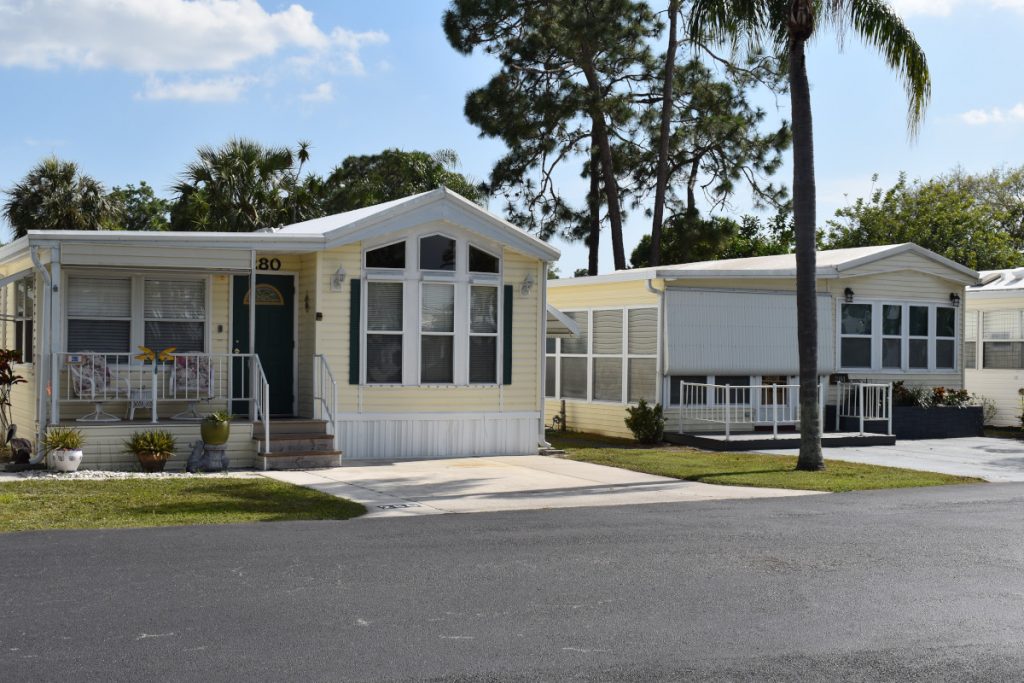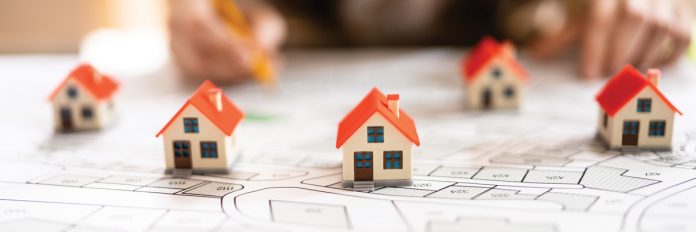Should You Develop an MHC? If So, What Does It Entail?
By James Cook and Mitch Gonzalez
First off, how did we get here? There was virtually no development for the manufactured home community property type for 20+ years!


The MH & RV Class has attracted a lot of attention lately from the institutional investment world, but the “smart money” has been quietly acquiring these properties for years. Today, it is estimated that more than 70% of the larger, institutional communities are owned by an aggregator that rarely sells, thus creating a scarcity of opportunities to invest in the industry. Due to the increased demand, coupled with this scarcity of product, investors have been forced to start bidding on mid-size and even small communities just to place raised or allocated capital seeking a safe home. Today, even the 75- to 150-site communities are becoming very sought after.
The good news is the increase in value and demand per space have finally made it feasible to develop new communities and turn a profit.
In the heyday of development in this sector, the 1970s and 80s, you could sell 75-100 new homes every year and generate a large enough profit on each home sale to cover the cost of development of the site itself. Since then, and especially since the recession, the cost of site-built homes has been artificially depressed and too low for new manufactured homes to offer a competitive price. In addition, the relatively low value of a developed space was further suppressing the new manufactured home development and to a lesser extent RV resorts.
We abruptly turned the corner sometime in 2019 as prices per developed pad reached $80-200k per site in prime markets, and suddenly, development started to spring up around the U.S. Then, the pandemic and government shutdowns came, which caused people to flee cities and multi-family housing and rush to more rural settings. This rush to detached housing fits the MH & RV industry perfectly. The rapid mass migration, combined with a shortage of construction workers, has created urgency to build. Single-family rentals are selling at record highs and the delta between site-built and factory-built housing has never been wider.
With construction rapidly on the rise, we felt it necessary to launch a dedicated land and construction division to better understand and facilitate new manufactured home community development.
Enter Mitch Gonzalez, the national land and development director for Yale.

Land Development for New Affordable Housing
Existing mobile home communities are selling at record-breaking prices per pad as institutional investors continue to consolidate the sector. As such, a new generation of feasibility for manufactured housing developments has arrived. New manufactured home developments offer significantly higher than existing returns compared with other communities. Investors can expect to see 20% – 30% stabilized cash-on-cash returns compared to high single digit/low double digit returns for existing properties.
Seeing how attractive they are, let’s break down the steps of development for a new manufactured home community.
Site Selection
It’s important to dial-in the necessary buying metrics for your investment, such as population and market rents. Different metrics should be used to prequalify the property based on the property type. While an RV Resort will benefit from traffic count on a major interstate, a Manufactured Housing Community will benefit from local employment centers and single-family home prices.
Acquisitions
Once we have selected a possible development site, we are ready to dive into the due diligence. Third-party Reports such as feasibility studies, drainage reports, and environmental assessments will be necessary for the evaluation. Buyers and Sellers can expect purchase agreement terms to include 90-day due diligence and 45-day close with contingencies on third-party reports and zoning hurdles.
Entitlements
We will then do a full evaluation of the current zoning and adjacent parcels. In most cases, the property will not have the necessary zoning and a Land Use Change will be needed. The best way to go about this will be to engage a designer and local engineering group for conceptual drawings. These will be very helpful for the pre-application meeting with Planning & Zoning when you are expected to sell them on your idea.
Construction
Construction costs are on the rise in all asset classes. Material costs are up 19.4% in the last 12 months according to the Product Price Index and labor is slowly coming back as government assistance runs out. It is critical to staff the right general contractor for the project that will be able to build at a competitive rate. A new manufactured home development can expect between $30k and $45k of hard costs per pad across the U.S.
Lease Up
The last barrier of entry will be setting up an allocation to fill the community. Many manufactured home builders are 6-12 months out on orders. It is important to be timely and strategic in making sure model homes are available when sites start to come online. A great sales team will need to be assembled to ensure lease-up coordinates well with home allocation.
Zoning continues to be a big hurdle for Manufactured Housing Developments, yet all states need more affordable housing. As more 5-star communities are built, there will be more great examples of what affordable housing can be. The development of manufactured home communities is gaining traction in states like Arizona, Texas, and Florida and I expect the southeast coastal markets will see the next wave of new development in the space.
Yale Realty & Capital Advisors can be a resource at every step of the development process. We have clients and partners that specialize in manufactured housing and RV resorts.
About the Authors
Mitch Gonzalez is the director of land sales and development for Yale finding the highest and best use of a property leveraging a diverse background in real estate investment. He previously ran a construction company providing general contracting services for brands such as Emcure Urgent Care, Jonna Properties, and Safeway Oil Company, overseeing $70 million in closings.
James Cook is the national director of brokerage for Yale Realty and Capital Advisors. He entered the manufactured housing and RV property asset class in 2005 as a licensed agent listing homes for a local investor. In 2012, he founded the fully-integrated finance and brokerage shop and has accumulated transaction exceeding $1 billion in value. He offers perspective at a national level, providing insight into the niche industry.










